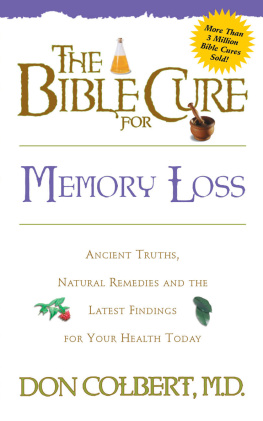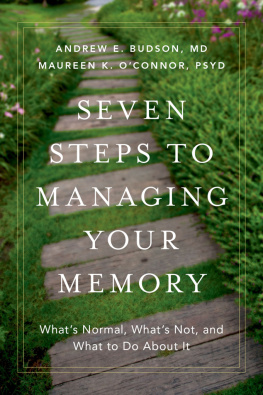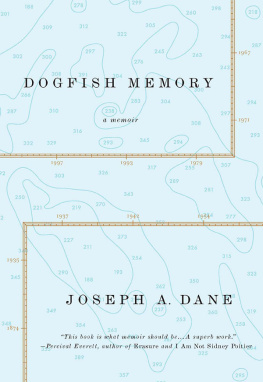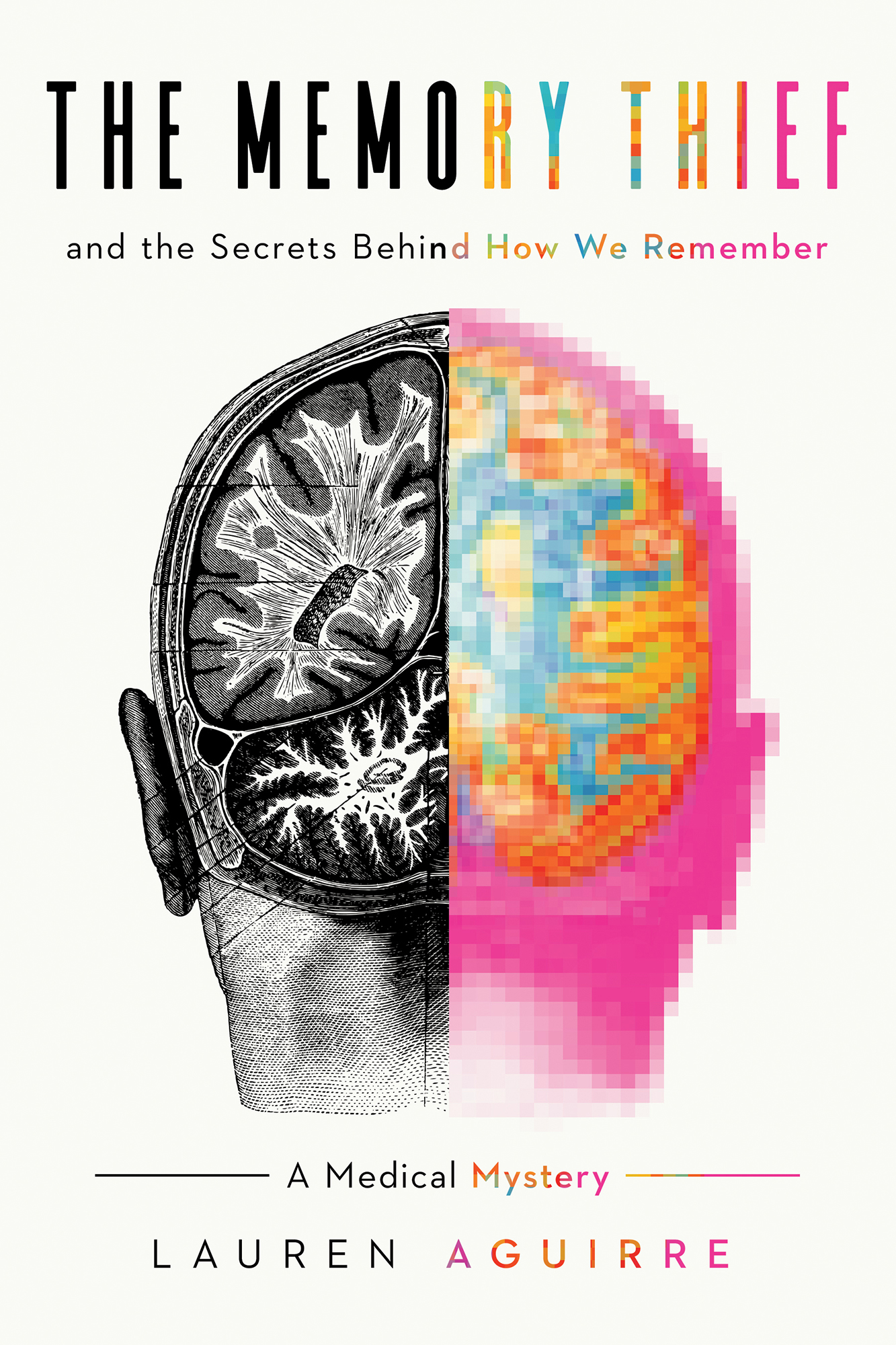Contents
Guide
The Memory Thief
and the Secrets Behind How We Remember
A Medical Mystery
Lauren Aguirre
THE MEMORY THIEF
Pegasus Books, Ltd.
148 West 37th Street, 13th Floor
New York, NY 10018
Copyright 2021 by Lauren Aguirre
First Pegasus Books cloth edition June 2021
Interior design by Maria Fernandez
Cover design by Faceout Studio, Spencer Fuller
Cover images from Getty and Shutterstock
All rights reserved. No part of this book may be reproduced in whole or in part without written permission from the publisher, except by reviewers who may quote brief excerpts in connection with a review in a newspaper, magazine, or electronic publication; nor may any part of this book be reproduced, stored in a retrieval system, or transmitted in any form or by any means electronic, mechanical, photocopying, recording, or other, without written permission from the publisher.
Library of Congress Cataloging-in-Publication Data is available.
ISBN: 978-1-64313-652-3
Ebook ISBN: 978-1-64313-653-0
Distributed by Simon & Schuster
www.pegasusbooks.com
For my wise mother, Char Seeley, who always remembers what matters.
Preface
This is a story about memorythe brains almost magical and still somewhat mysterious trick for making sense of the world. You could argue that our memories are as essential to identity as breathing is to life. So when news surfaced in 2017 that a small group of people had lost the ability to form even a single new memory, the story naturally captured public attention. Outlets such as the Associated Press, BuzzFeed, STAT news, the Boston Globe, and the Atlantic all covered the news about fourteen opioid overdose survivors in Massachusetts who had woken up with amnesia. In the aftermath of the overdose, each of these patients had been left with a strange and precisely defined pattern of damage to the hippocampus, the memory center of the brain. Doctors had never seen anything like it, but after an initial flurry of attention, interest waned. The incident was relegated to the realm of mystery, believed to be limited to a few unfortunate occurrences in one small corner of the globe. At the time, I was on staff at the PBS documentary series NOVA, where we covered the so-called amnestic syndrome in a brief blog post.
I found it difficult to resist the gravitational pull of this story because I know firsthand how terrifying it is to lose ones memories. Years ago, on an otherwise unremarkable early morning while tapping away on my laptop, everything I knew slipped away in a matter of mere seconds. I was still there, in the sense that I could hear the heater blowing and see the deep green walls around me. But I didnt know who I was, where I fit in, or what anything meant. It was a vertiginous plunge into nothingness, so disorienting and unnerving that I lay facedown on the carpet. Thankfully, after a minute or two, the memories returned, and everything made sense once again.
After I had undergone many brain scans, neurological exams, and consultations, doctors determined that this strange episode was an aura, a brief seizure provoked by a collection of errant neurons firing too rapidly. The chief of neurosurgery at a prominent Boston hospital proposed removing an abnormal brain lesion. A neurologist, on the other hand, recommended daily medication to keep the auras at bay. Faced with these two options, I turned to as many other experts as I could for informal advice. One was a neurologist friend named Jed Barash. Barash came to my house, sat down at the computer, and scrolled slowly back and forth through my MRI scan. When he finished looking, he said that he would avoid the surgery if it were up to him. In his pragmatic and cautious view, I should just keep an eye on it. It was good advice. I took the medicine, never had another seizure, and probably never will. The only lasting effect of the whole experience was to leave me fascinated with memory and curious about the mysteries posed by weird brains.
Barash would later be the neurologist who would help identify the first four amnesic patients between 2012 and 2015, leading to a statewide search for more. When the Centers for Disease Control and Prevention (CDC) released the 2017 report describing the syndrome, I began to pester Barash with questions. He and his colleagues suspected that the syndrome was caused by fentanyl, an opioid whose use was surging just as the amnestic syndrome survivors were coming to light. These clinicians feared that there would be other victims across the country in places where fentanyl use was rising. They were also beginning to wonder if this mystery at the intersection of two public health crisesopioid use and memory losscould turn out to be a tiny piece of the giant puzzle that is Alzheimers disease.
To cover the investigation into the amnestic syndrome and bring to life some of the pivotal moments through reconstructed scenes, I interviewed doctors, patients, and family members, combed through text exchanges, and gathered several hundred e-mails sent between health experts, the Massachusetts Department of Health, and other government agencies. (More detailed information can be found in the sources section on p. 241)
The more I looked into the syndrome, the more it seemed that I could illuminate how we know what we think we know about memory and memory disorders through the prism of this obscure and tragic story. I learned that the source for new insights is often patients who generously volunteer to participate in research, even when they know it wont benefit them directly. I wanted to explore how such hard-won insights, combined with fundamental neuroscience, suggest unexplored strategies and new hope for treating memory disorders. And finally, I was interested in what happens when novel ideas bump up against conventional wisdom, forcing medical science to move ever closer to what will always be an incomplete version of the truth.
Prologue
California, March 2018
Alone in the stillness of his apartment, 25-year-old Owen Rivers hunches over his phone and reads the journal entry hes just written into his notes app.
If nothing matters, we contrive meaning for ourselves. So why cant mine just be something that soothes me so that I can live here more peacefully? There are pressures from every direction saying that using drugs is unacceptable. And I understand most of them, but I still think that thats been the best solution for me so far.
He reviews the paragraph again because just writing it down is not enoughits never enough. But, temporarily satisfied, relieved that hes captured the thoughts of the day before they slip away, he leans back in his recliner and looks out the window at the view over Los Angeles. Owen is tall and lightly built with dark hair and darker eyes. His apartment is clean, the only decorations a lone cactus on the kitchen counter and a watercolor of a man silhouetted against a green wall, arms stretched overhead, palms pressed against a barred window.
Owen pads barefooted across the polished wood floor, pours a glass of cold water, then sinks back into the recliner to update his memory lists. These are the things he doesnt want to forget, color-coded for long-term, soon, and now. Owen is a successful insurance broker who graduated a few years earlier with highest honors from UCLA. He has no apparent reason to suspect memory problems, but hes been plagued for years with an irrational fear of forgetting. The compulsion to write is embarrassing and unrelenting. Each list has dozens of entries. When he gets to the end of one list, he reviews, reorders, and rechecks before moving on to the next, a process that can take hours. Tonight, the long-term category feels less urgent, but he skims through it anyway, for the sake of completeness.








